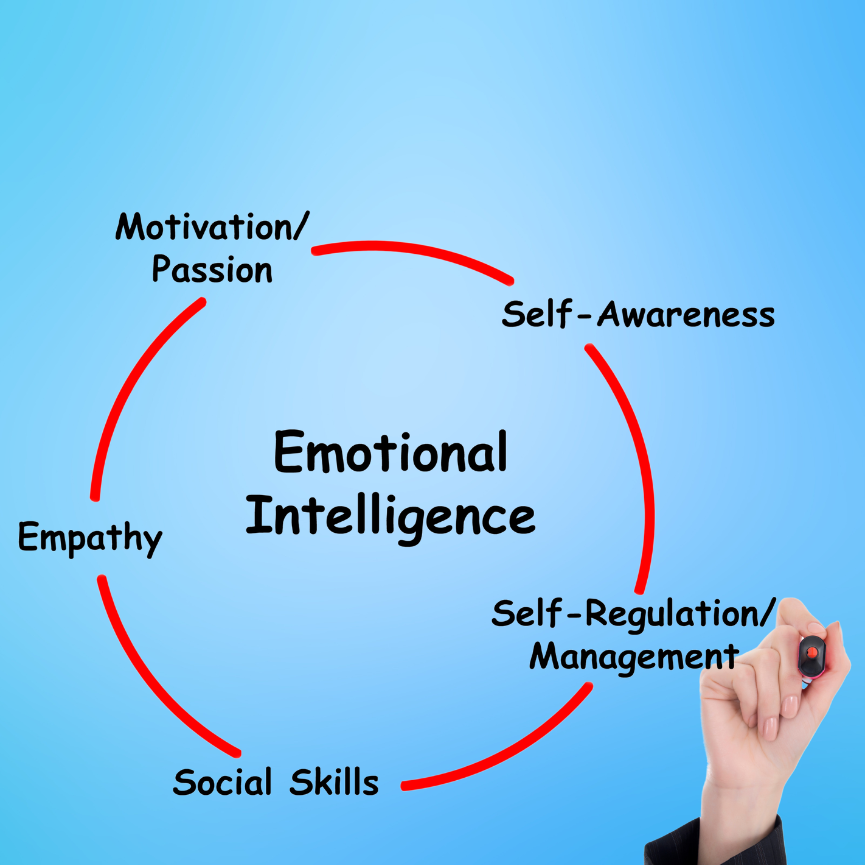
- May 09, 2024
- 199 Views
- 0 Comments
Building Emotional Intelligence In Children With Autism
As Maya Angelou said, 'I've learned that people will forget what you said, people will forget what you did, but people will never forget how you made them feel' - dive into our guide on nurturing emotional intelligence in children with autism.
Emotional intelligence is crucial to human development, allowing individuals to understand and manage their emotions effectively. For children with autism, developing emotional intelligence can be particularly challenging, as they often face difficulties in recognizing and expressing their own emotions, as well as understanding the emotions of others. However, with the right guidance and support, it is possible to help children with autism build their emotional intelligence. In this comprehensive guide, we will explore various strategies and techniques to foster emotional intelligence in children with autism, emphasizing the importance of tailored approaches and patience.
Crucial Insights into Autism Spectrum Disorder (ASD)
Before embarking on the journey of enhancing emotional intelligence in children with autism, it's imperative to grasp the fundamentals of Autism Spectrum Disorder (ASD). ASD stands as a multifaceted neurodevelopmental condition marked by a spectrum of hurdles encompassing social interaction, communication, and repetitive behaviors. Its impact varies widely among individuals, manifesting with diverse levels of intensity. Children grappling with autism often encounter challenges in processing sensory stimuli and may face hurdles in both verbal and non-verbal communication, which intricately influences the development of emotional intelligence.
The Importance of Emotional Intelligence
Emotional intelligence plays a vital role in a child's overall development. It enables them to:
- Recognize Emotions: Identify and understand their own emotions.
- Empathize: Understand the feelings of others and show empathy.
- Regulate Emotions: Manage their emotional responses appropriately.
- Navigate Social Situations: Build positive relationships and navigate social interactions effectively.
- Solve Problems: Develop problem-solving skills by considering emotions.
For children with autism, building emotional intelligence can enhance their quality of life, improve communication, and reduce behavioral challenges. It also helps them connect with peers and family members more effectively.
Building Emotional Intelligence in Children with Autism
Emotion Identification and Expression
- Visual Aids: Use visual tools like emotion cards or charts with pictures depicting various emotions. Help the child identify and express their own emotions using these visuals.
- Emotion Charades: Play emotion-based charades to encourage the child to mimic and recognize different facial expressions and body language associated with specific emotions.
- Storytelling: Use storytelling as a medium to discuss emotions and their causes. Create narratives that revolve around characters experiencing different feelings.
Emotion Regulation
- Coping Strategies: Teach coping mechanisms like deep breathing exercises, counting to ten, or using sensory tools to help children manage overwhelming emotions.
- Visual Timetables: Implement visual schedules to help children anticipate and prepare for transitions, reducing anxiety.
- Positive Reinforcement: Encourage and reward positive emotional regulation behaviors to reinforce their use.
Empathy Development
- Role-Playing: Engage in role-playing scenarios where the child can practice understanding and responding to others' emotions.
- Emotion Guessing Game: Play a game where the child guesses how someone might be feeling based on their facial expressions, tone of voice, and body language.
- Books and Media: Utilize age-appropriate books, cartoons, and movies that explore emotional themes to spark discussions about empathy.
Social Skills Enhancement
- Social Stories: Create social stories that provide clear, step-by-step guidance on appropriate social behaviors and responses to emotions.
- Group Activities: Encourage participation in group activities, such as group therapy sessions or autism support groups, to practice social interactions in a safe environment.
- Peer Modeling: Pair the child with a neurotypical peer who can serve as a role model for social interactions.
Communication Skills
- Augmentative and Alternative Communication (AAC): For non-verbal or minimally verbal children, AAC devices or systems can aid in communication, enabling them to express emotions and needs.
- Social Communication Training: Seek the guidance of speech therapists or autism specialists for targeted interventions aimed at improving communication skills.
- Visual Supports: Use visual communication tools like picture exchange systems (PECS) to facilitate communication.
Individualized Support Plans
- Assessment: Regularly assess the child's specific needs and challenges.
- Tailored Interventions: Develop individualized intervention plans based on the child's strengths and weaknesses.
- Collaboration: Work closely with educators, therapists, and parents to ensure a cohesive approach to emotional intelligence development.
Patience and Persistence
- Set Realistic Expectations: Recognize that progress may be slow and incremental.
- Celebrate Small Wins: Acknowledge and celebrate each achievement, no matter how small.
- Consistency: Maintain a consistent and supportive environment to foster emotional growth.
Building emotional intelligence in children with autism is a journey that requires dedication, patience, and a tailored approach. By understanding the unique challenges these children face and implementing the strategies outlined in this guide, parents, educators, and therapists can make a significant impact on their emotional development. Remember that every child is unique, and progress may vary, but with unwavering support and encouragement, children with autism can develop the emotional intelligence skills they need to thrive in their personal and social lives.



Comments - 0 comments till now